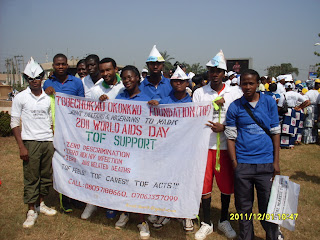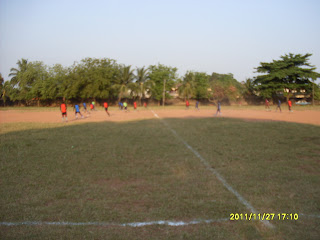Church members, friends, family members and relatives at the church service.
Umuada also came to pay their last respect.
Mama Labour's first son and daughter near the casket paying their last respect.
The prestigious egwu aguba came too to pay last respect to one of their own, mama labour was a well respected member of the group.
The Ikpoho ogbe, ndi-Ogbeogo,i.e women married to Ogbeogo men, performing too, Mama labor was one of them. They too came to pay respect to one of their own because they know her worth and sound sense of judgement at issues, especially her fearless disposition.
Okwulagwe Ezeafadia performing the Ikwulu-Ozu rites, the last rite of honor for their sweet sister, the youth group performs this rite for their own, these youth are the last to see the departed one.
Barr. Chris Onyemenam, his wife-Akudika Ogene, flanked by friends led the walk to the Onyemenam country home at Ezeafadia Kings Street, for the internment of Mama Labor
Mama Labor on her way back to her father's house at Ezeafadia Kings Street, Ajaji Quarters, Asaba.
Thanks Friends For Your visit at this time of grieving, Barr. Chris Onyemenam shares with his friends.
Mama Labor steps into the Obiaso ancestral home.
Finally, Mama Labor arrives at his father's compound
Grave Side Prayers and blessing of the grave, the presiding ministers are flanked both sides by family members.
Ikechukwu, Mama labor's first son performing the dust to dust ritual for his sweet mother.
Barr. Chris Onyemenam with words on marble performed his dust to dust rites too.
After the internment, Barr. Chris led other family members to meet Diokpa Ezeafadia, akpakpalani ogbe, Ogbueshi George Onyemenam to brief the Diokpa how the event was conducted.
Barr. Chris receiving some vital words of advice, wise counsels and patriarchal blessings form the Diokpa Ogbe, akpakpalani Ezeafadi, Ogbueshi George Onyemenam.
Barr. Chris Onyemenam pose for Asaba Post News-Wire with his ever charming and beautiful Akudika Ogene, dalunu so, unu akwa ka nwanne anyi bu Sister Ngozi, Ani Ahaba ga edu unu shi ne.
Thanks for giving us at Asaba Post this opportunity to mourn with you and rights to publish same.
































